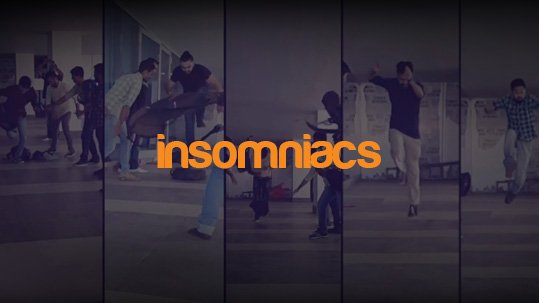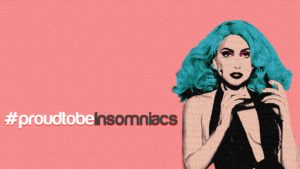1) In this section, the guest, Sam, discusses the concept of branded land and the importance of having a recognizable and consistent brand in the real estate industry. He explains that being a branded land developer can attract consumers across different age groups and create opportunities for investment. The host highlights the significance of this new category in the real estate market and why it is important for investors. The guest also discusses the similarities between his firm and the host's, emphasizing their shared focus on consumer-centricity, data, and technology. Overall, the conversation revolves around the purpose and future prospects of branded land and the value it brings to the industry.
2) In this section, the speaker discusses the value of land as an asset class and how Huabl aims to democratize land ownership for retail consumers. They highlight the challenges of transparency and legal issues that have hindered land consumption at a retail level. The speaker believes that land is one of the most credible means of creating intergenerational wealth and explains how Huabl plans to create branded land offerings to address the security, transparency, wealth, and liquidity concerns in the market. The target audience for Huabl is anyone who wants to generate wealth and views land as an essential part of their asset portfolio.
3) In this section, the speaker discusses how the land can be a credible means of wealth creation, especially when bought at the right location and held over a longer period of time. They highlight that land is considered an essential part of wealth portfolios by those who intend to create wealth. The speaker then introduces Hua, a company that aims to bring new values to the purchase of retail land in India. They compare Hua's approach to the schematization of land, allowing consumers across different demographics to participate in wealth creation through land ownership. The speaker also mentions that a healthy mix of consumers, including first-time buyers, are considering land as an investment. They emphasize the importance of category education, digital marketing, and branding in appealing to consumers and making land investment more accessible.
4) In this section, the speaker discusses the importance of being a recognizable and consistent brand in the real estate industry. This consistency and sustainability have helped attract consumers across different age groups, including younger individuals who are just starting out in their careers and looking to invest. The speaker also mentions that their company has successfully tapped into a previously untapped need gap in the market, but there is still plenty of room for growth. The shift from a seller's market to a buyer's market has been a significant paradigm shift in the industry, with developers now putting the consumer at the center of their offerings. Additionally, there is a focus on providing products and services that consumers seek, as well as consolidation in the industry, with consumers showing interest in buying.
5) In this section, the speaker discusses the success and progress of branded land in the real estate market. They compare the development of branded land to raising a child, emphasizing the importance of instilling the right values and culture within the organization. The speaker also mentions three parameters for measuring success, including financial performance, the creation of a credible customer value proposition, and substantial growth. They highlight that in the previous fiscal year, they achieved a 6x growth and aim for a 4x growth in the upcoming year. Overall, the speaker believes that branded land is a new and promising category in real estate, with the potential for further evolution and success.
6) In this section, the speaker discusses three principles that define the success of their organization in the real estate industry. Firstly, they focus on sustainable profitable growth, which has resulted in a significantly large consumer franchise. Secondly, they emphasize brand reputation due to the convincing value proposition of their category, attracting consumers from around the world. Lastly, they highlight the importance of their diverse and talented team, which includes professionals from various backgrounds. The speaker believes that the mix of people in their organization will be their strength in terms of future growth and innovation. Additionally, they mention that their consumer base has a versatile and fungible outlook on the asset class, with consumers using the properties for different purposes such as wealth generation, second homes, or future options.
7) In this section, the speaker discusses the importance of technology in the real estate industry and how it can simplify the lives of consumers. They explain that in the future, there will be two types of organizations: pure tech companies and tech-backed companies. The speaker states that their company is focused on integrating technology into their platform to make it easier for consumers to discover and purchase land. They highlight two phases of their tech journey: remote discovery of land through simulative technology and managing the consumer life cycle on a mobile app. The speaker believes that these tech integrations will be a game-changer in the real estate industry and will simplify the lives of both existing buyers and new consumers.
8) In this section, the speaker talks about their ambition to revolutionize the real estate industry through technology. They aim to create a marketplace where land, brand, wealth, and technology are synonymous, making land ownership more accessible to the general public. The speaker also discusses the concept of fractional ownership and how it aligns with their business model of democratizing land ownership. They believe that through fractionalization, they can make high-quality assets available to retail consumers, breaking down barriers of pricing and entry. The speaker emphasizes their commitment to driving fractionalization as a key principle of their business and making it a phenomenon in the country.
9) In this section, the speaker discusses the current model of fractionalization and the market size of the branded land category. They emphasize that land is synonymous with wealth and that their focus is on creating wealth through branded land. They estimate the annual primary sales in the organized branded land category to be around 55-60,000 crores. They also mention that while other asset classes like bank deposits, gold, and stock markets have created wealth, they see an opportunity to tap into the market and make land synonymous with wealth. Additionally, the speaker mentions Airbnb as their favorite prop-tech company, highlighting the transformative role it has played in the real estate industry with the use of technology.
10) In this section, the speaker discusses two prop-tech companies that he is a big fan of. The first company focuses on making experiences available to consumers at affordable and simplistic methods while generating wealth for owners. The second company, called LandIt, uses technology to provide information and insights to consumers in the opaque and regulated world of property records, enabling decision-making. The speaker expresses excitement about the potential synergies between his own company and LandIt, highlighting the importance of technology and data-centricity in driving future growth and success in the real estate industry. He believes that companies that make data-driven decisions will outperform those that dont, emphasizing the transformative power of data in the industry.
11) In this section, the speaker discusses the journey of building a company and ensuring that the vision is not undermined. They mention that there are aspects of the business that are not visible to the normal eye but are crucial to its operation. When asked to compare the company to a person, the speaker suggests that if the brand were a person, it would be someone like Roger Federer or Diego Maradona. They explain that Federer represents grace, performance, and a mix of art and science, while Maradona was responsible for making football synonymous with his name globally. The speaker then relates these qualities to what they envision for their branded land and wealth.
12) In this section, the speaker discusses why he admires Kumar Sangakkara and how he wants his own brand, Huabl, to be like him. He praises Sangakkara for being non-controversial, loved, and consistently performing well in cricket. The speaker also mentions Sangakkaras ability to handle the pressure of being a wicketkeeper and batsman, as well as the burden of carrying the team. He believes that Sangakkaras work ethic and brand value are something he wants Huabl to embody. The speaker concludes by thanking the viewers and reminding them that the episode has explained the value chain of the real estate branding category.






